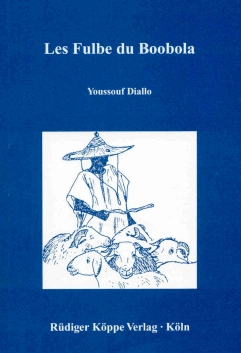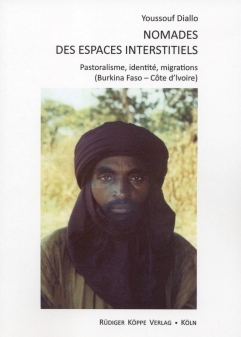



The important Islamic Fulbe empires of the 19th century since long are the focus of interest for historical Fulbe Studies. The greater part of the smaller half-autonomous states at the border areas of these empires have scarcely been subject of scientific research up to the present. The present study is a first step towards clarifying the settlement and conquest history of the Fulbe in the Northwest of Burkina Faso.
In the beginning of the 18th century the Fulbe left the densely populated areas of the Niger valley (in today's Mali). Today they live in Boboland at the border of Mali. The main focus of interest lies on the transition from the peaceful infiltration of the Fulbe pastoral nomads to the political domination and the foundation of the Barani state.
Further chapters deal with the social and political organisation as well as the relations with the neighbouring states, that is the animistic Yatenga state, the theocratic ones of Diina Seeku Amadu in Maasina and its succession state under al-Hajj Umar Tall. The book ends with the description of the relations with the state of Samori Touré and the simultaneous military extinction of the Barani state through the French.
About the author:
PD Dr. Youssouf Diallo, born in Burkina Faso, studied sociology and social anthropology in Ouagadougou, Strasbourg and Paris. Involved in the postgraduate program Market, State and Ethnicity at the University of Bielefeld / Germany (1993–1995), he taught there at the Sociology of Development Research Centre and conducted research in Burkina Faso, Mali and Côte d’Ivoire (1995–1999). Since 1999 Youssouf Diallo is a Senior Researcher at the Max Planck Institute for Social Anthropology (Halle/Saale). In 2004 he finished his habilitation thesis in social anthropology and has since been a private lecturer at the Institute of Ethnology, University of Leipzig. The present study is a revised version of his dissertation at the Ecole de Hautes Etudes en Sciences Sociales in Paris.
Under these links you will find publications by the author and further empirical studies of Fulani culture, their language and migration / transnationalism research:
© 2026 by Rüdiger Köppe Verlag – www.koeppe.de